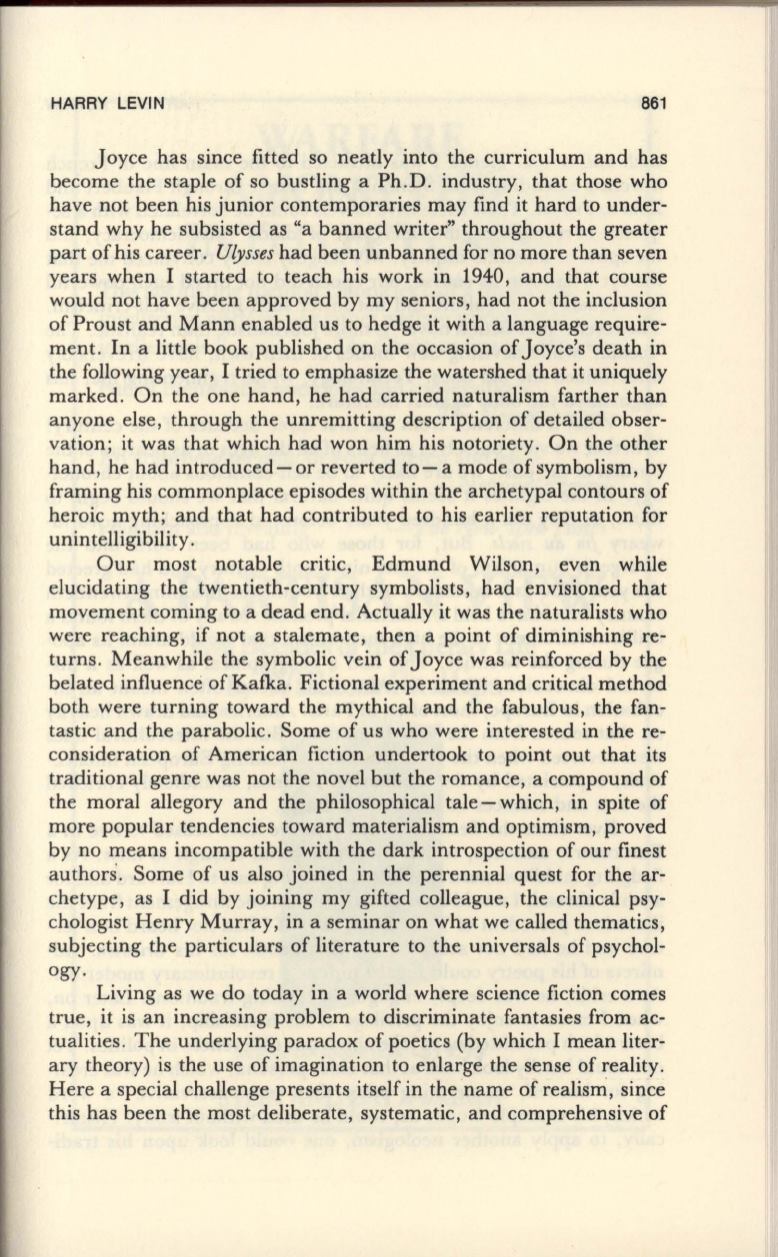
HARRY LEVIN
861
Joyce has since fitted so neatly into the curriculum and has
become the staple of so bustling a Ph.D. industry, that those who
have not been his junior contemporaries may find it hard to under–
stand why he subsisted as "a banned writer" throughout the greater
part of his career.
Ulysses
had been unbanned for no more than seven
years when I started to teach his work in 1940, and that course
would not have been approved by my seniors, had not the inclusion
of Proust and Mann enabled us to hedge it with a language require–
ment. In a little book published on the occasion of Joyce's death in
the following year, I tried to emphasize the watershed that it uniquely
marked. On the one hand, he had carried naturalism farther than
anyone else, through the unremitting description of detailed obser–
vation; it was that which had won him his notoriety. On the other
hand, he had introduced- or reverted to- a mode of symbolism, by
framing his commonplace episodes within the archetypal contours of
heroic myth; and that had contributed to his earlier reputation for
unintelligibility.
Our most notable critic, Edmund Wilson, even while
elucidating the twentieth-century symbolists, had envisioned that
movement coming to a dead end . Actually it was the naturalists who
were reaching, if not a stalemate, then a point of diminishing re–
turns. Meanwhile the symbolic vein of Joyce was reinforced by the
belated influence of Kafka. Fictional experiment and critical method
both were turning toward the mythical and the fabulous, the fan–
tastic and the parabolic. Some of us who were interested in the re–
consideration of American fiction undertook to point out that its
traditional genre was not the novel but the romance, a compound of
the moral allegory and the philosophical tale- which, in spite of
more popular tendencies toward materialism and optimism, proved
by no means incompatible with the dark introspection of our finest
authors. Some of us also joined in the perennial quest for the ar–
chetype, as I did by joining my gifted colleague, the clinical psy–
chologist Henry Murray, in a seminar on what we called thematics,
subjecting the particulars of literature to the universals of psychol–
ogy.
Living as we do today in a world where science fiction comes
true, it is an increasing problem to discriminate fantasies from ac–
tualities. The underlying paradox of poetics (by which I mean liter–
ary theory) is the use of imagination to enlarge the sense of reality.
Here a special challenge presents itself in the name of realism, since
this has been the most deliberate, systematic, and comprehensive of


